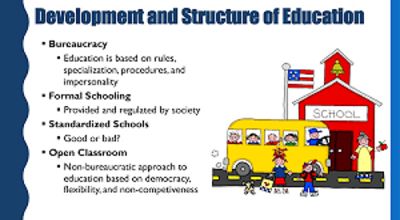Structures in the field of education
In the field of education, “structures” refer to the various frameworks, systems, and mechanisms put in place to support and facilitate effective teaching, learning, and overall educational outcomes. These structures encompass a wide range of elements that are essential for the smooth functioning and success of educational institutions, programs, and initiatives. Here are some key components of structures in the field of education:
1. Educational Policies and Frameworks
- Overview of national and international educational policies
- Impact of policies on support structures
- Examples of effective policy implementations
2. Teacher Training and Professional Development
- Importance of continuous professional development
- Programs and initiatives for teacher training
- Role of mentorship and peer support
3. Technological Support and Infrastructure
- Integration of technology in education
- Digital resources and tools for teachers and students
- Access to technology and its implications for support
4. Parental and Community Involvement
- Importance of parental engagement in education
- Community resources and partnerships
- Case studies or examples of successful community involvement
5. Specialized Support for Diverse Learners
- Support for students with disabilities
- Programs for gifted and talented students
- Inclusive education practices and their impact
6. Counseling and Mental Health Services
- Role of counseling in academic success
- Importance of mental health support for students
- Challenges and solutions in providing mental health services
7. Financial Support and Scholarships
- Scholarships and grants for students
- Financial aid programs and their impact
- Addressing financial barriers to education
8. Global Perspectives on Support Structures
- Comparison of support structures in different countries
- Lessons learned from international models
- Global initiatives for educational support
9. Challenges and Future Directions
- Common challenges in implementing support structures
- Innovations and future trends
- Recommendations for improving support structures
Conclusion
- Recap of the importance of support structures in education
- Call to action for stakeholders
- Final thoughts on the future of educational support
Overall, structures in the field of education provide the framework and support necessary to create conducive learning environments, promote equity and access, and enhance educational outcomes for all learners. They play a critical role in shaping educational experiences and fostering lifelong learning.
